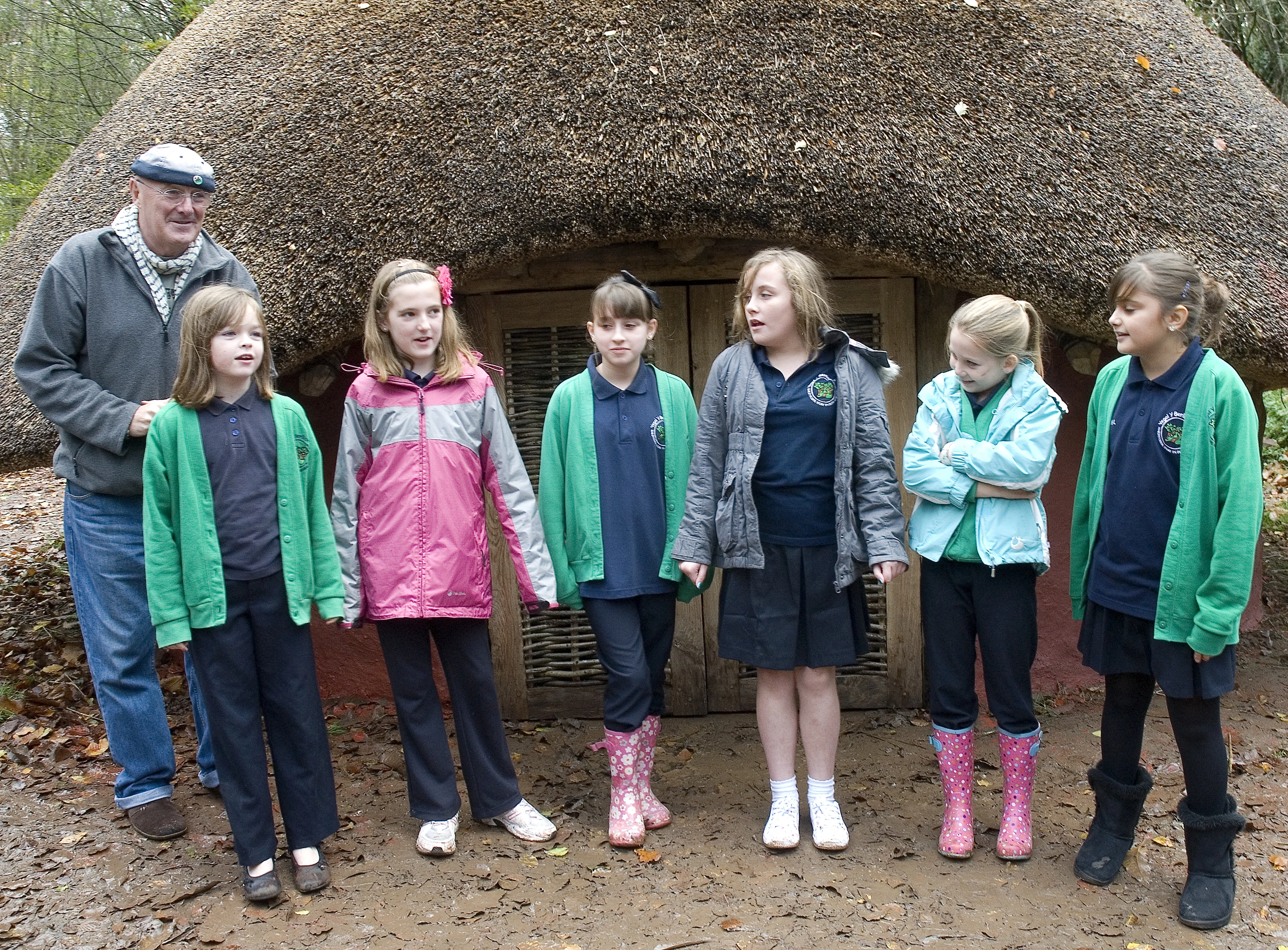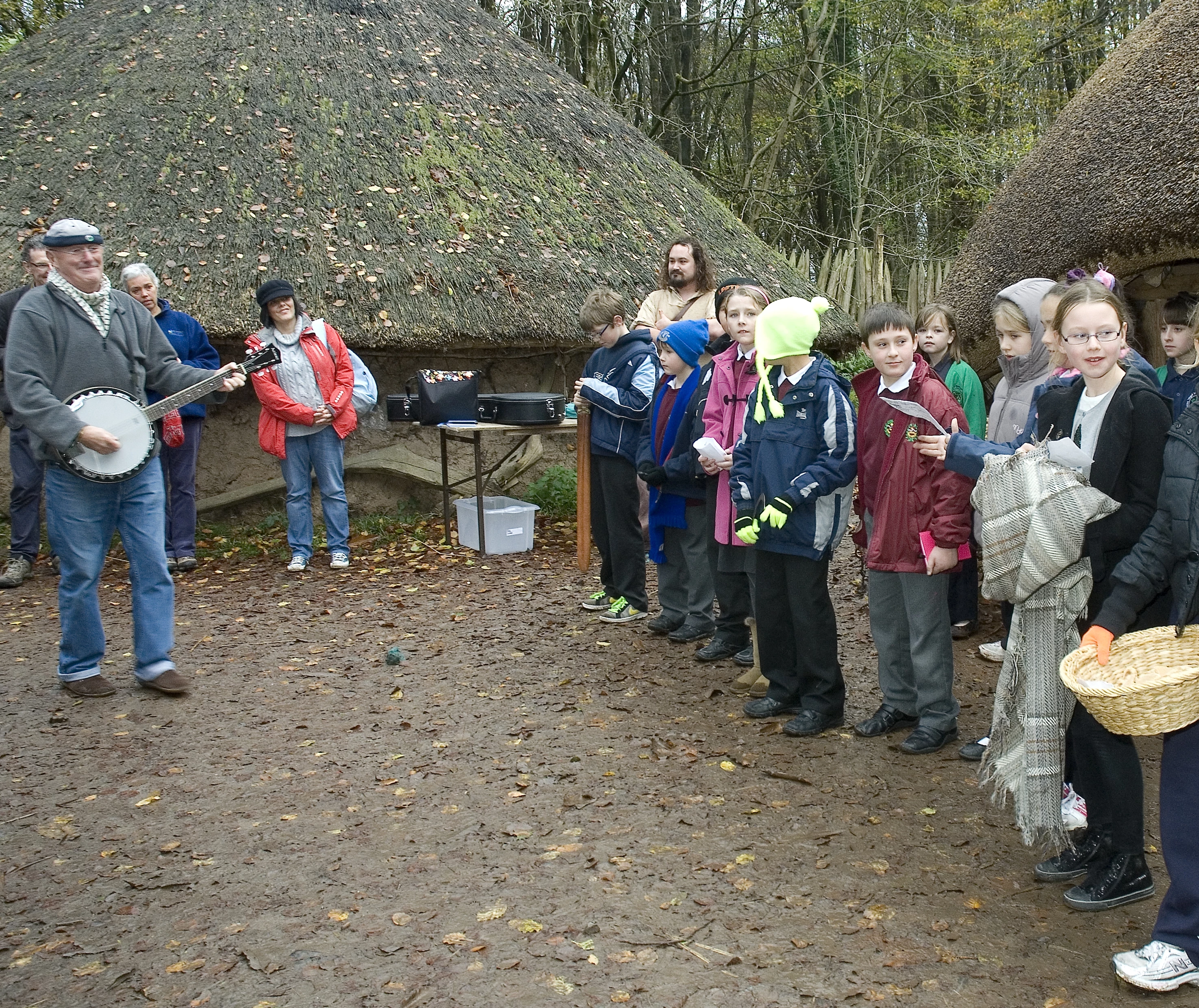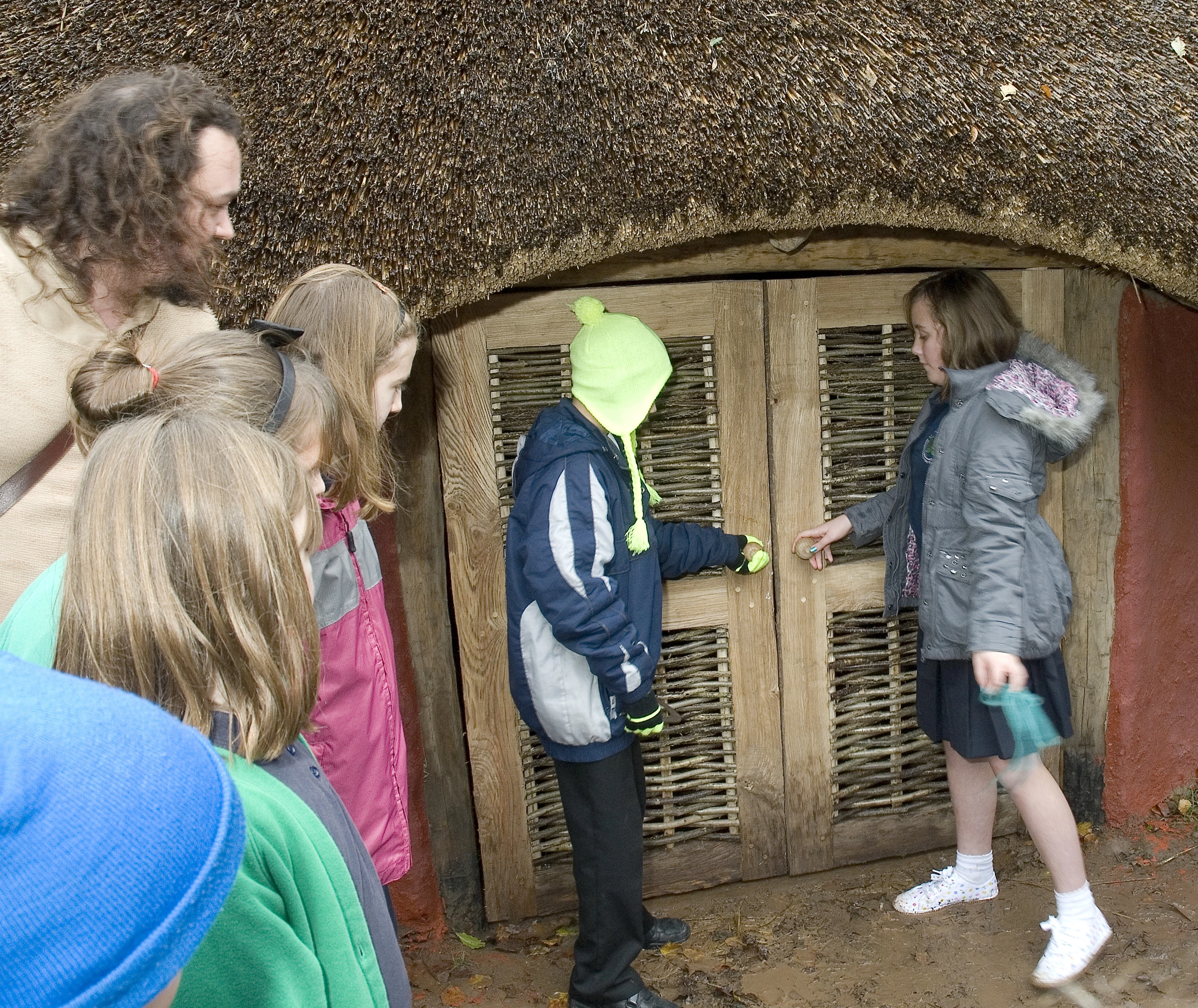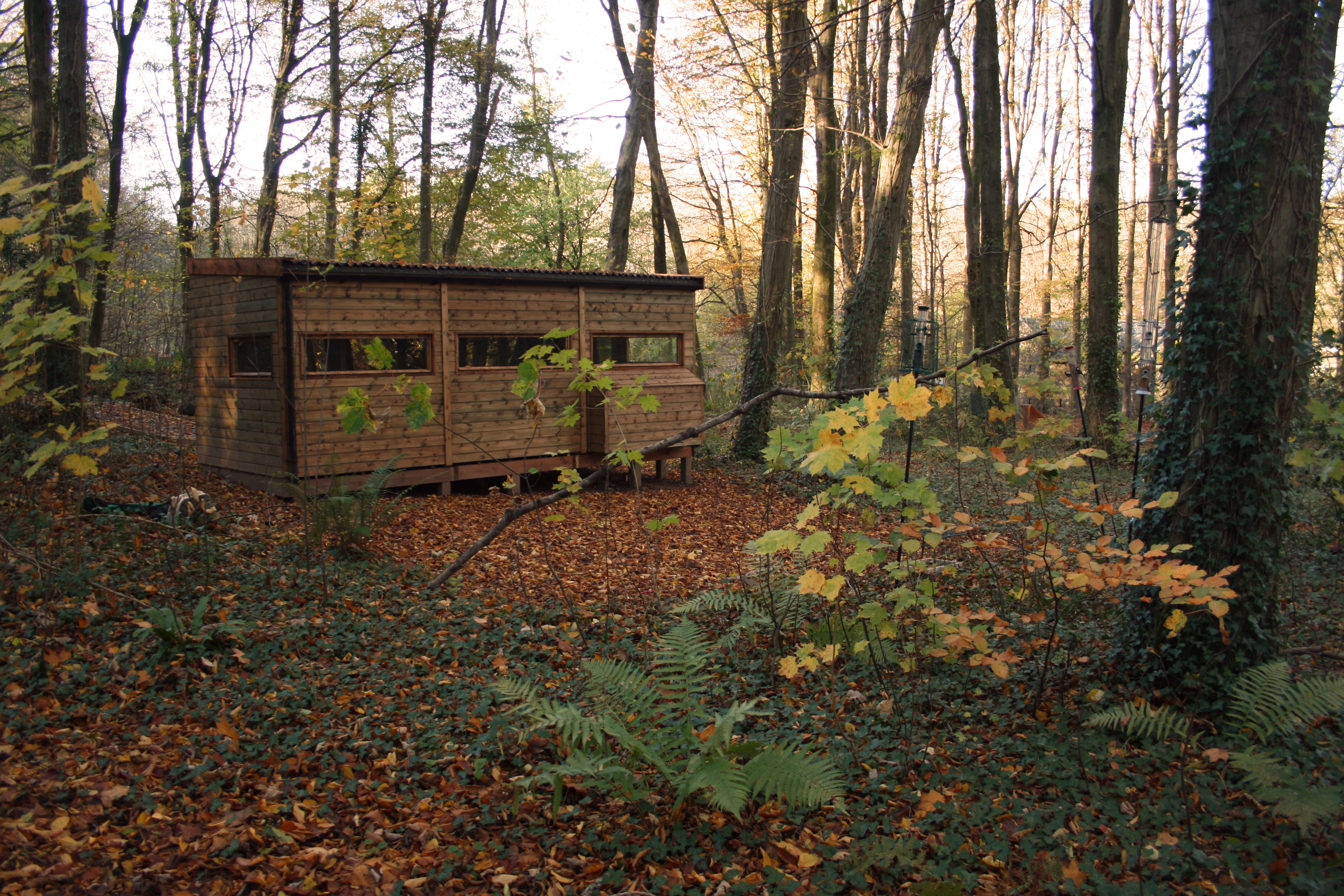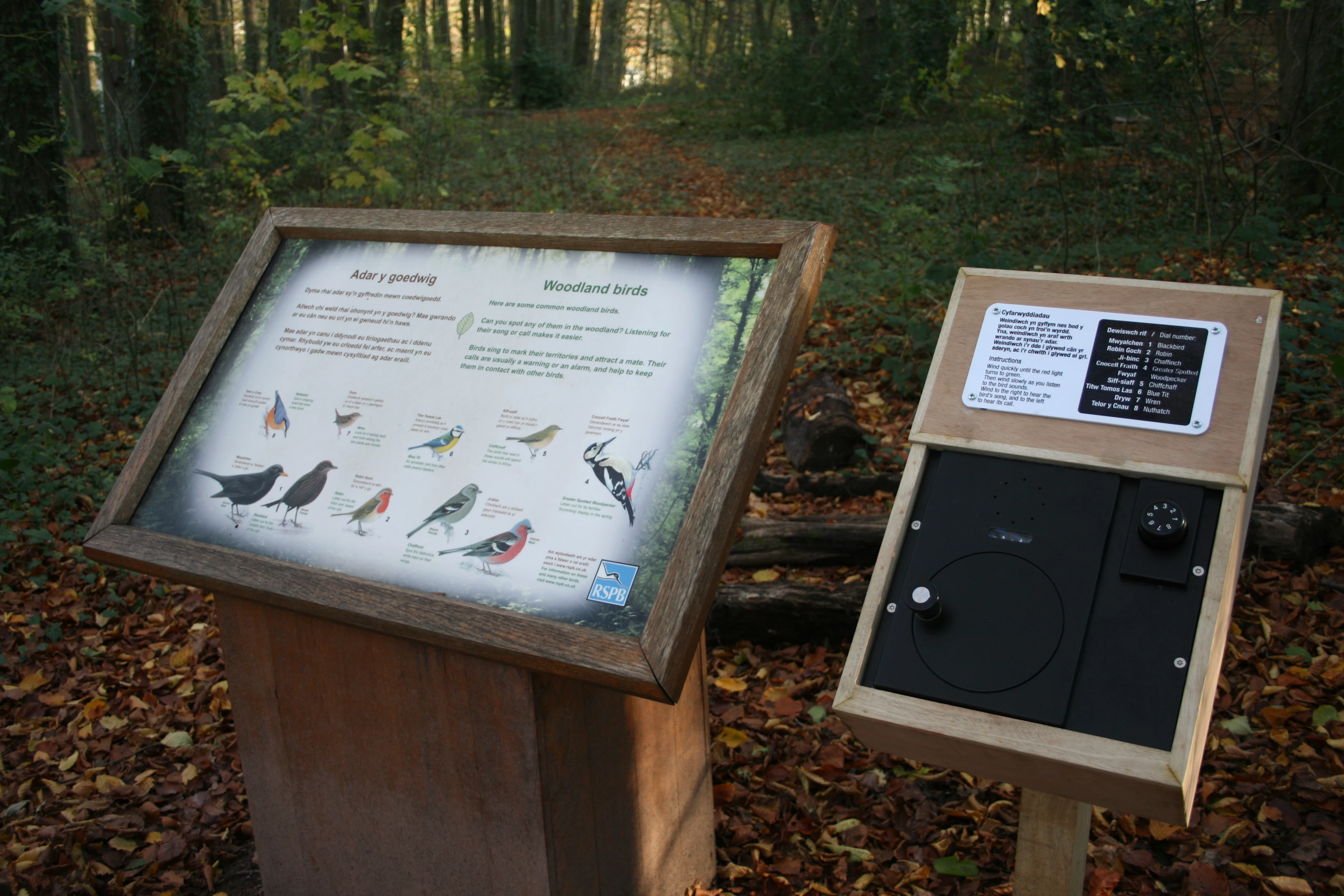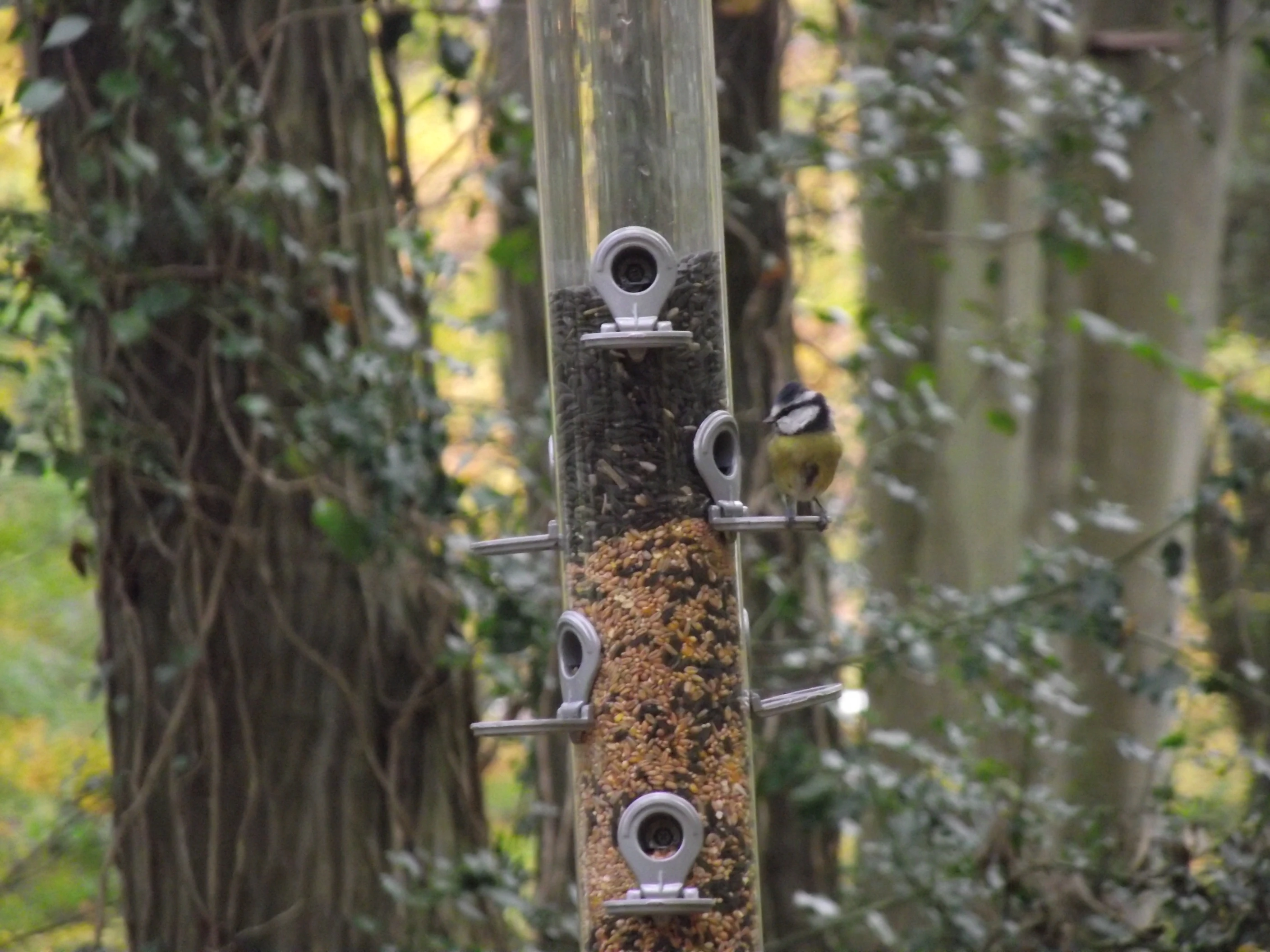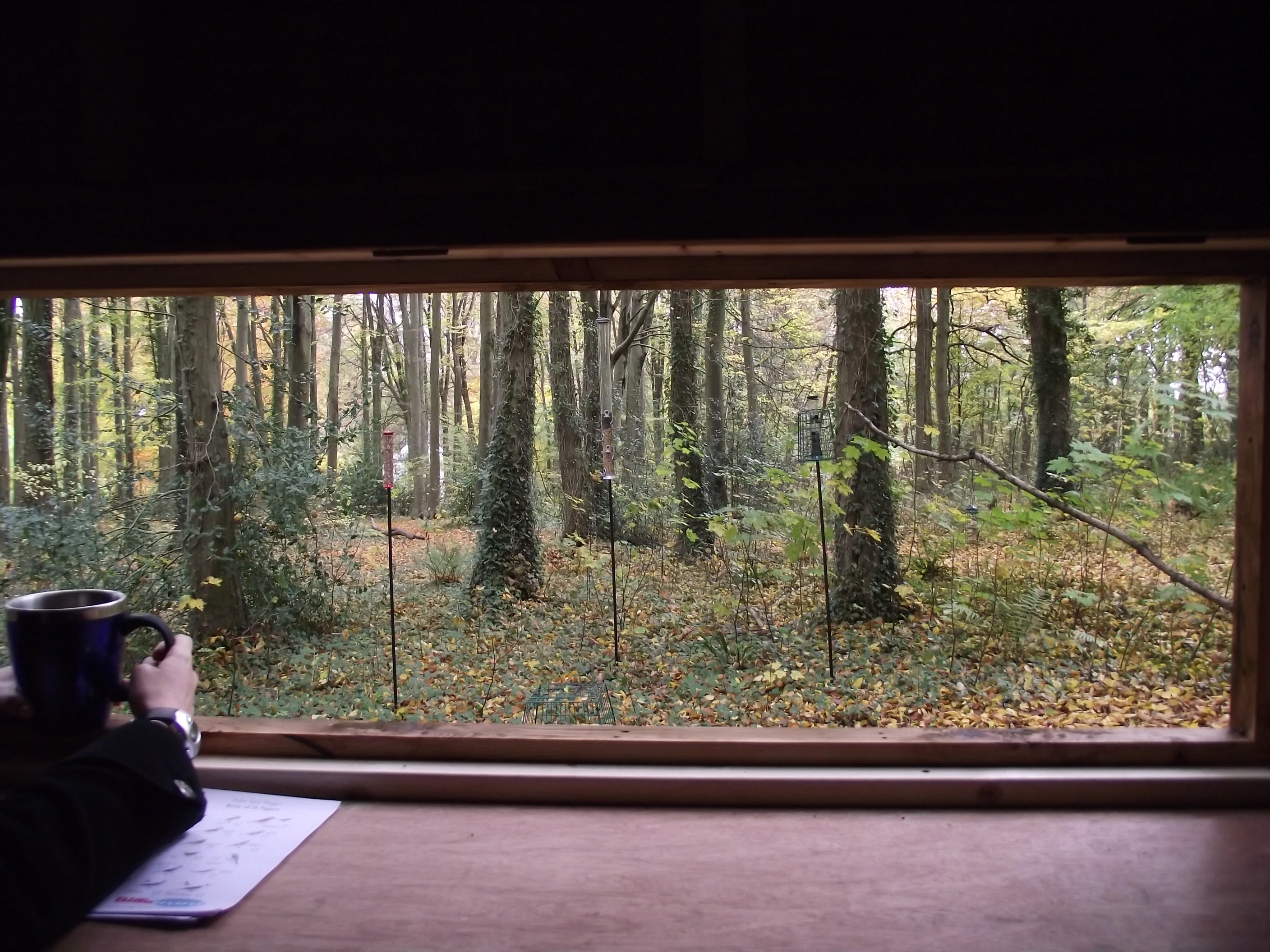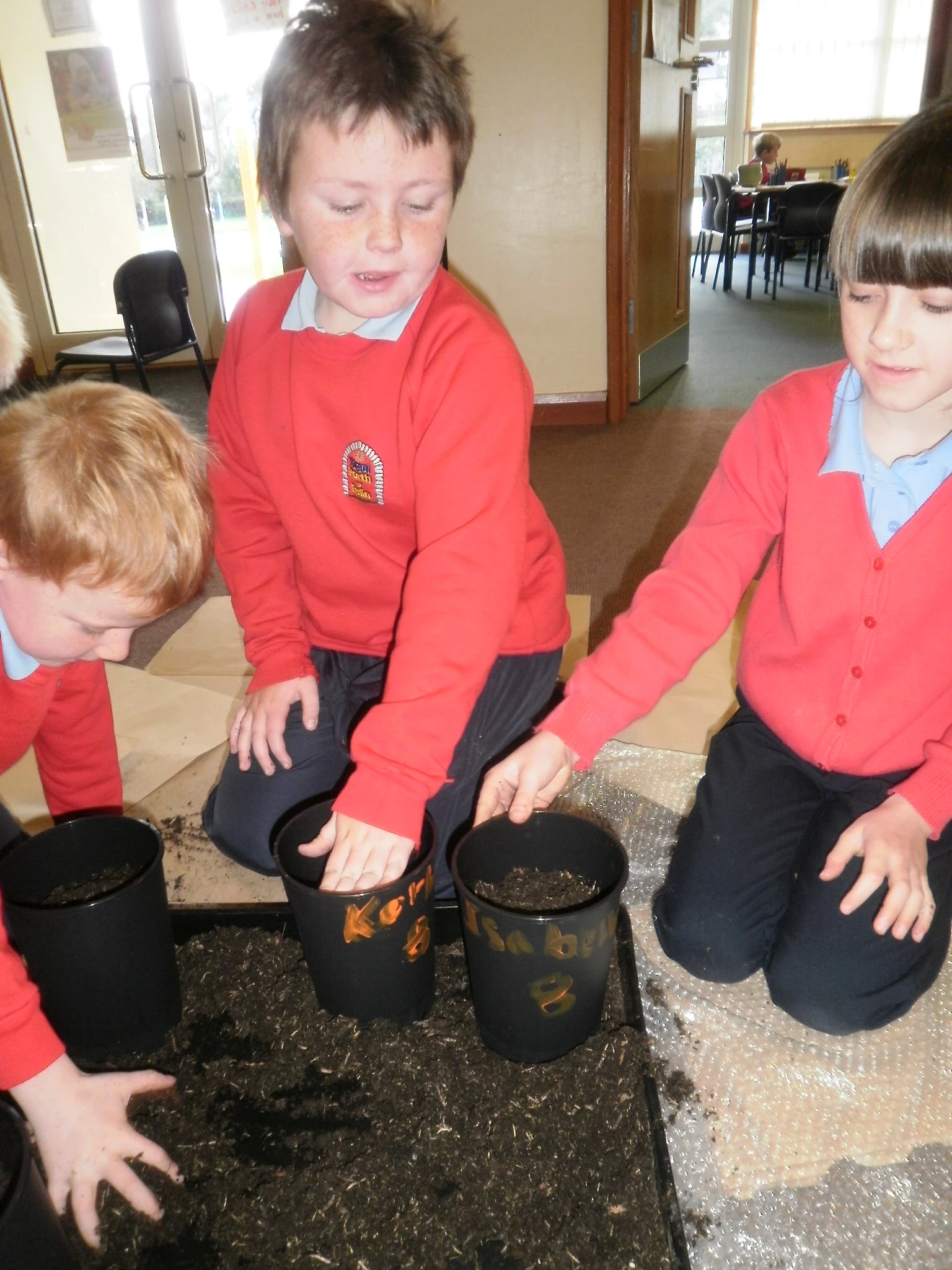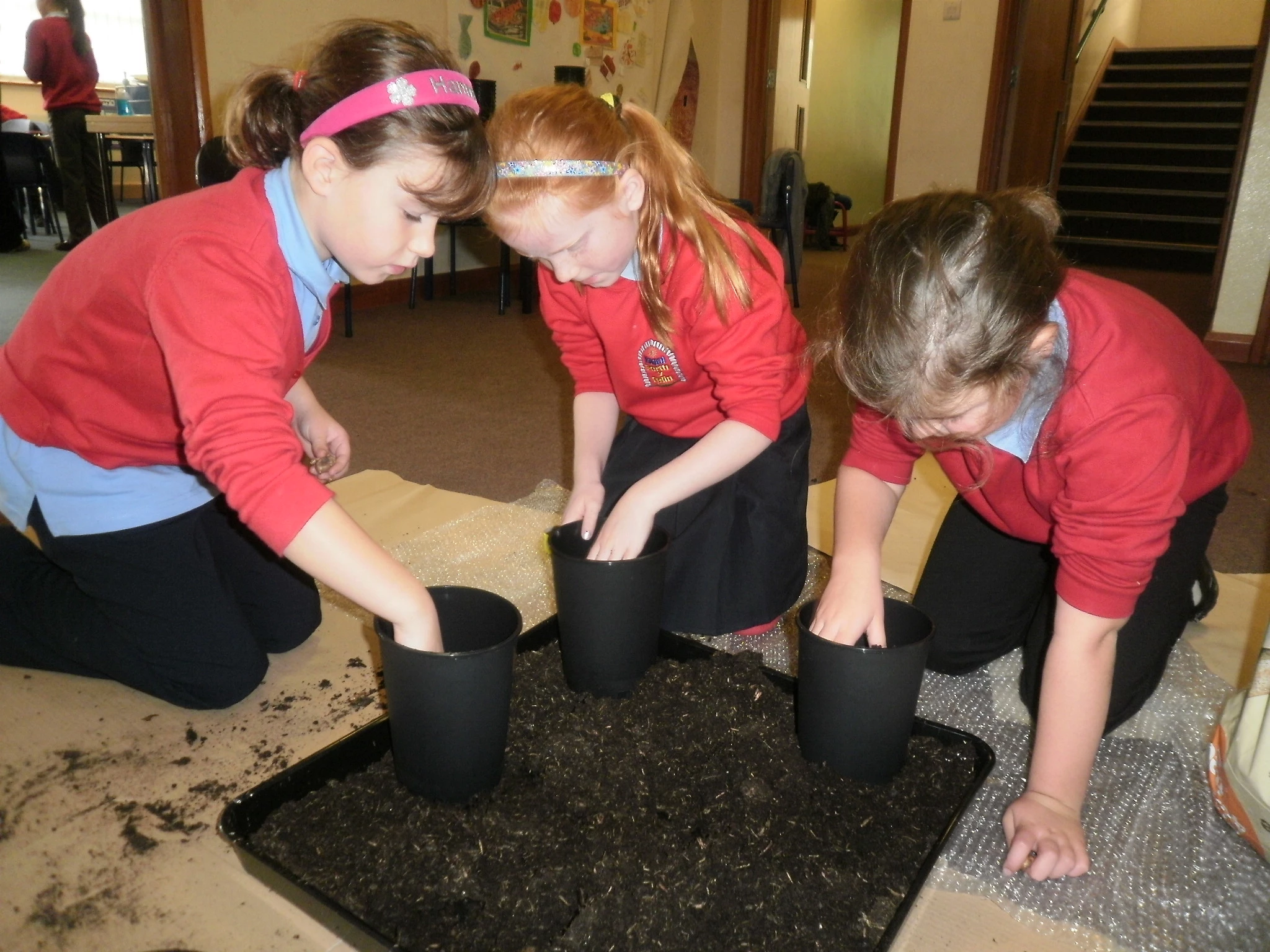This is my first blog since being appointed Exploring Nature Facilitator here at St Fagans museum. The purpose of my job is to try and encourage visitors to take notice of the wealth of nature and animals living within the museum.
As part of this project, there have recently been some developments in woodlands at St Fagans, near the woodlands walk. Alongside one of the information panels, we have had a bird sound winder installed! By simply selecting the bird you want and winding the arm you can now listen to the songs and calls of 8 of our woodland birds! It’s a great way to get to know the different bird songs!
We have also recently had a bird hide installed in the woods. This is a great place to come and relax while watching some of our birds feeding at the feeding station. So far we have noted at least 9 different species visiting the feeders, from assorted tits to a greater spotted woodpecker. Of course, being in the woodlands we also get the occasional squirrel visiting too.
The bird hide should be open to the public soon, hopefully before the end of the month! It really is a lovely place to come with a thermos of hot tea and relax. We are currently working on some information panels which will hope to have up ready for early spring.
If you have any suggestions about how we should use the bird hide or even a name for it, please let me know by commenting. Keep an eye on this blog for information on forthcoming nature events and activities.
The project is funded by Biffaward though the Landfill Communities Fund and by Legal and General.
